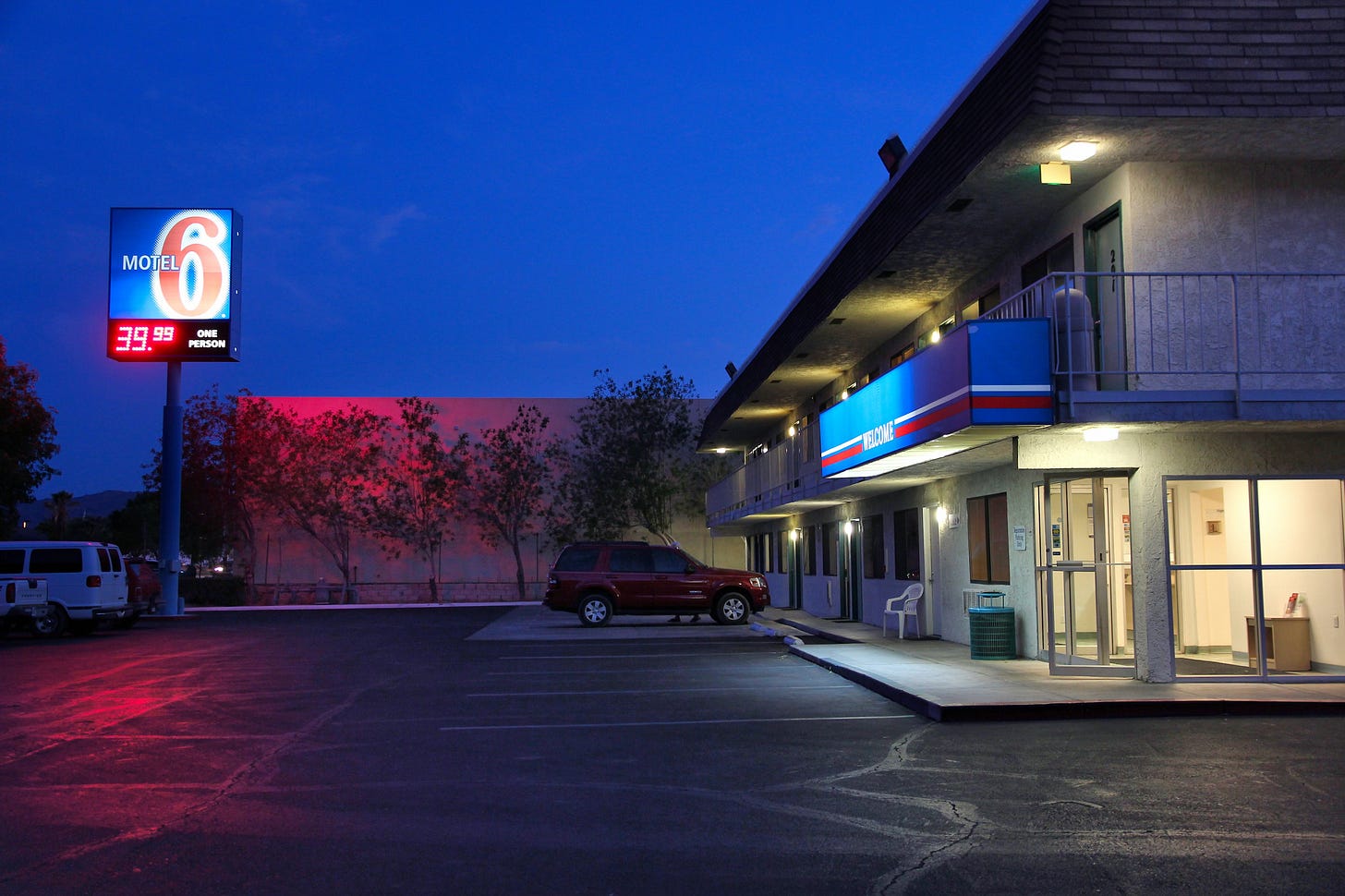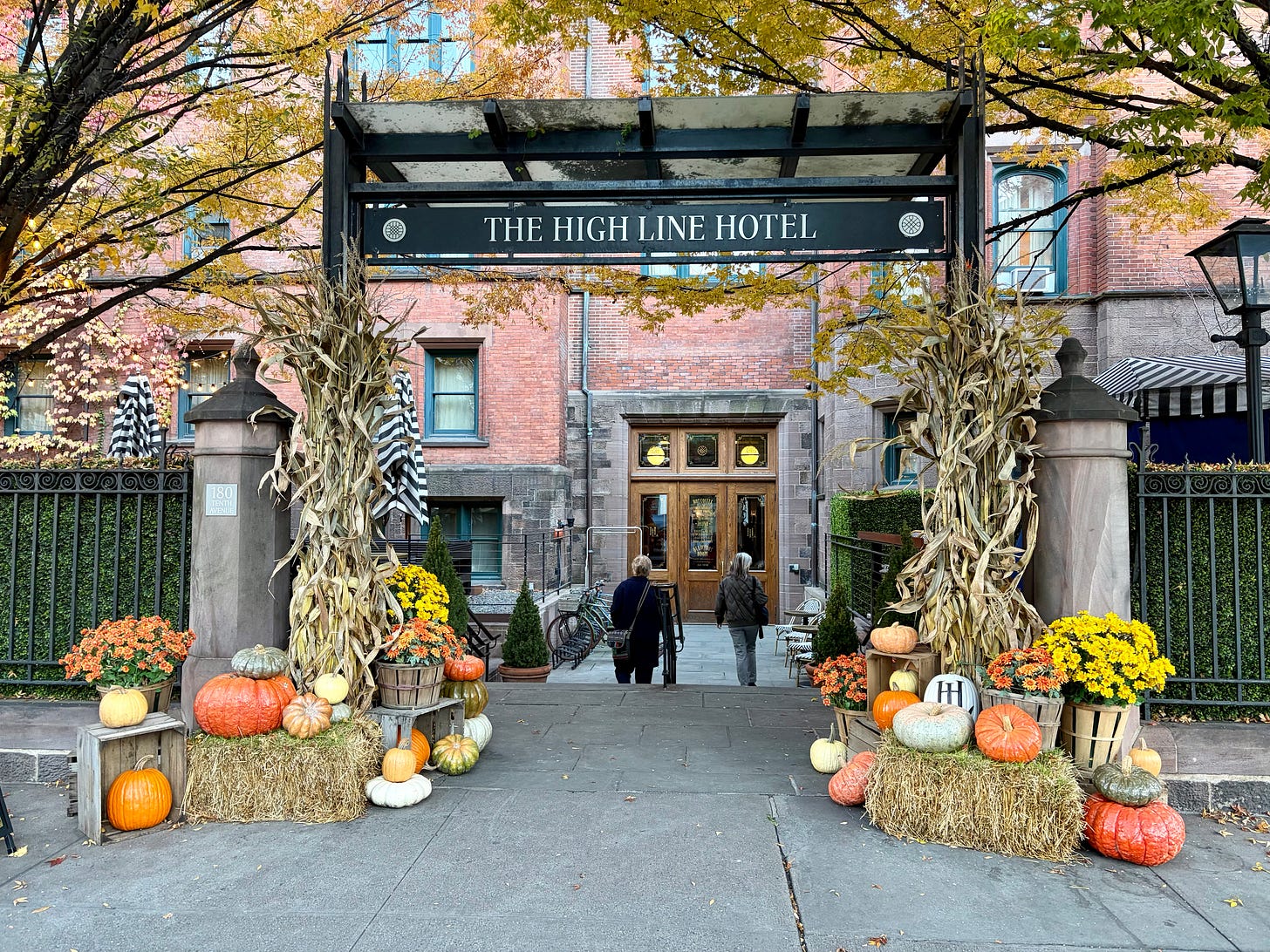Leaving the Light On, &c.
On war, democracy, the Age of Trump, and more
“War is hell.” We all know that. But sometimes—we really know it.
In New York this week, I met a man named Jake. He told me about his dad—a fellow from Wisconsin who went off to war (WWII) at 19. Came back with one leg.
Used a wooden leg, nothing fancy, nothing modern. He was in pain all the time. And the painkiller was alcohol. He died, fairly young, of alcoholism.
These young guys saved the world. But, dammit—you’re 19, on the cusp of life, and you get dragged into this thing and ...
I was talking about this with my friend Kevin (Williamson). He, too, had a relative who survived the hell of war, came back, and anesthetized himself with alcohol.
Kevin put it so well: “Necessary evils are still evils.”
***
Like many other Americans—particularly in New Jersey and Virginia, I think—I voted yesterday. Entering the polling place, I felt a surge of appreciation for the majesty of democracy.
I’ve soured on politics, heaven knows. Still: democracy—a true one—is a rare and precious thing.
(I have to ask, however: How did democracy throw up such a pathetic mayoral field in New York?)
***
A rather handsome entrance, in the city (uber-autumnal):
***
I noticed it was pitch-black at like 5:30—p.m., I mean. I thought of Florestan, in Fidelio—his first words: “Gott, welch Dunkel hier!” (“God, what darkness here!”)
***
My mother has two little great-granddaughters, and I think I quoted one of them in a recent column: “You know why I get up so early? I like a long day” (and she stretched out the word “long”).
I thought of her on reading the obit, in the New York Times, of Martha Layne Collins. She was the governor of Kentucky. Born in 1936, she grew up in Versailles (not France), and her parents ran a funeral home.
When Collins became prominent in the state, the obit tells us, the Lexington Herald-Leader asked her what had propelled her “from teacher and homemaker to politician.” She answered, “I guess growing up in a funeral home taught me about the uncertainty of life. I’ve always tried to put a lot into a day.”
***
I’m going to do something I should not do. I’m going to publish a letter that contains praise of me. I’m going to publish it because it says something about our time. I’m going to publish it, not because it is unusual, but because it is representative. I mean, many of us have received many, many letters like it over the past ten years.
I don’t think I’ve ever published such a letter. You open yourself to charges of “self-righteousness” and “moral preening” and all that.
May I confess something to you? I don’t care. I am so far beyond caring, I can’t even see caring.
As you read this, you may puke a little. I may puke a little. But ...
Jay,
After Substack prompted me to explain why I had subscribed to your newsletter, I started to write something which quickly exceeded the word limit. Alas, instead of editing it down, I had to paste the whole thing for you here (sorry!).
I was introduced to your work by my father. Back in the years B.T. (Before Trump), he would share many of your articles. Our shared appreciation of [positive qualities] was a bond between us for many years.
Alas, in the years A.T. (After Trump), we have no such bond. Let’s just say that I think and feel as you do, while he contends that you and I suffer from “TDS” [Trump Derangement Syndrome]. He insists that you and I are the ones who have sacrificed values ...
Back when I was in second or third grade, my father asked me what my favorite school subject was. I said, “Anything except history, which has no use at all.” He laughed and said that the understanding of history is crucial to modern life. If we don’t know about people who came before, he told me, we’re liable to repeat their mistakes.
Wow, was he ever right about that! In the years since, I have cultivated a passion for history. I believe I know exactly what my dad meant back then.
While we get ready to mark 250 years as a country, I wonder, “What will the next 50 years bring?” Our current leadership is antithetical to the principles of American greatness. Many people who once stood for principle have become sycophants, standing only for power (or “trolling the libs”). Until sanity returns to those who used to believe in limited government, free markets, and the rule of law, your writing is [helpful].
Please, keep writing. ... I don’t care how much our numbers dwindle, or by how much the zeitgeist is passing us by.
I love this country so much, and I am grieved by our descent into this state. The writing that you and others do is a true light in this darkness.
Now I have my own children and cannot help fearing for their future. The best thing I can show them is that standing up for what is right is the most important thing they can do.
Thank you for [blah blah blah].
I’m not going to publish many more like this, I promise—maybe not even any more. But I thought one would be semi-permissible. And maybe you can relate to it.
The letter-writer spoke of “light” and “shining examples” and so on.
On Election Day last year—a year ago today—I published a longish piece, memoiristic, called “A Political Testimony: The life of a conservative from Reagan to Trump.” That piece is here.
Let me paste the final paragraph:
I like a slogan from a motel chain. Indeed, I love it, not just as a slogan but also as a thought, a concept, a decision, a practice: “We’ll leave the light on for you.” Yes. Leave the light on. Let it shine, all through the night, year after year. That is the best one can do.





Thanks for publishing the letter, Jay. I can definitely relate. I have lots of relatives and friends who I thought believed in certain principles and who have been sucked into the Trumpy black hole. A sad time indeed.
I subscribed just so I could post this comment (OK, there may have been other reasons): You didn't need to point out you were patting yourself on the back QUITE so much. In fact if you just said "I want you to ignore the nice things he says about me and hear his story," it woulda been fine. So many people come to this aha moment with history. I feel fortunate that it happened when I was 19 and a friend showed me Solzhenitsyn's Harvard address. I read it and was so intrigued I asked "what else has he written?" and was steered, not to Ivan Denisovich but to the Gulag Archipelago. I read all three volumes that summer, and back at school in the fall I began my Paul Johnson journey. That old friend and I disagree a lot these days but we're still friends and my prayer is the kid becomes friends with his dad again. The stories of the past could provide a way back.